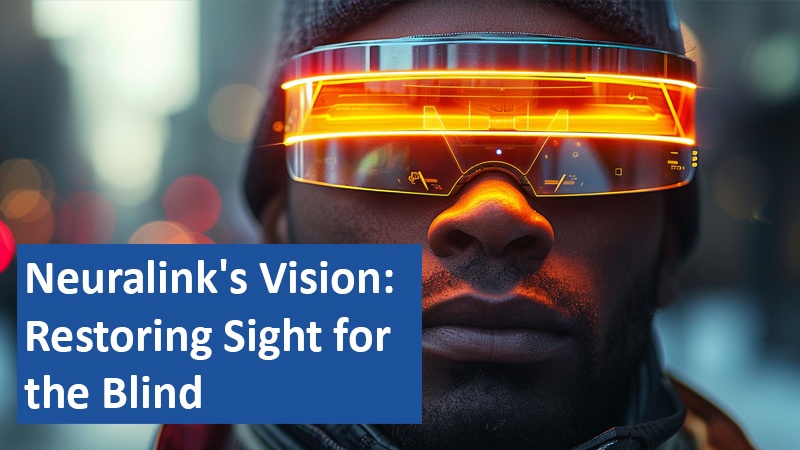Neuralink, Elon Musk’s brain-implant company, aims to bring sight back to those who have lost it, even from birth. The company’s groundbreaking device, known as “Blindsight,” promises to revolutionize treatment for the blind. With the backing of the U.S. Food and Drug Administration (FDA), this innovative technology could transform the future of vision restoration.
By Julian James
“Blindsight” and Its Breakthrough Status

Neuralink’s Blindsight device has been designated as a “Breakthrough Device” by the FDA, recognizing its potential to address severe medical conditions. While this designation speeds up the process of development and testing, it does not mean the device is approved for widespread use yet. Blindsight is designed to bypass damaged eyes and optic nerves, sending visual signals directly to the brain’s visual cortex. This technology could potentially enable even those born blind to experience some form of sight.
Potential Beyond Natural Vision
Blindsight’s vision capabilities are said to go beyond just restoring sight. Musk claims that the device could provide users with vision in wavelengths beyond what the human eye can perceive, such as infrared and ultraviolet. Initially, users may experience low-resolution images, similar to old video game graphics. However, the technology has the potential to surpass natural human sight over time, possibly leading to a new way of seeing the world that humans have never experienced before.
Skepticism from Experts
Despite the bold claims, many experts remain cautious about Blindsight’s effectiveness. Similar technologies have existed in experimental forms for decades, providing limited vision by converting camera images into electrical impulses sent to the brain. However, these devices have faced challenges in creating a clear image due to the limited number of electrodes that can be placed in the visual cortex. Some researchers doubt that those born blind, who lack developed visual cortices, could ever interpret these impulses as meaningful vision.
Moving the Technology Forward
Even with skepticism, Neuralink’s advancements are an exciting step forward for brain-implant technologies. The company has reportedly solved some of the major issues that have previously hindered similar devices, such as increasing electrode density for better image quality. While Musk’s claims may sometimes be overblown, there is no denying the importance of this research in pushing the boundaries of what is possible in vision restoration.
Neuralink’s recent progress in vision restoration is a promising development for those living with blindness. Although challenges remain, the potential for such technology to revolutionize medical treatment is undeniable.
Based on information from www.futurezone.at and own research.